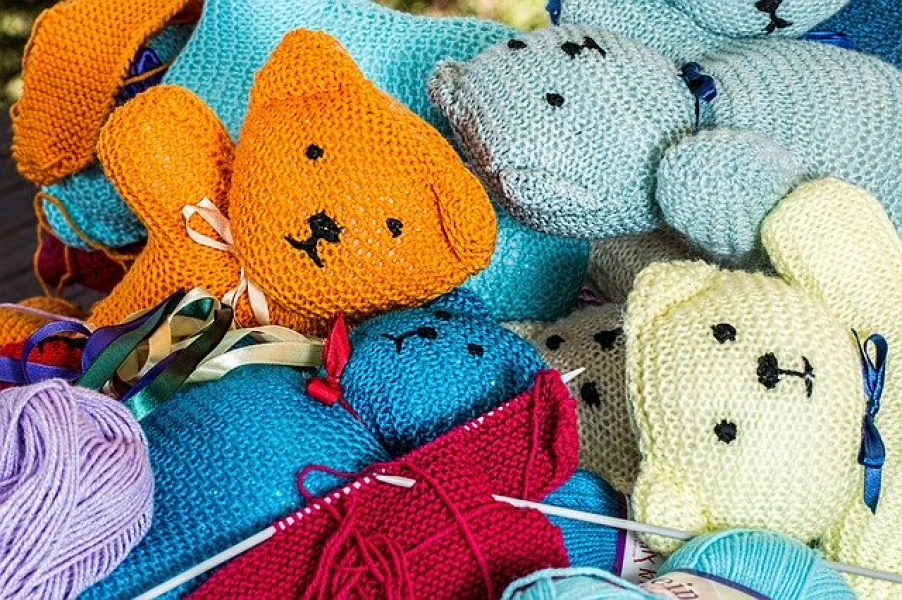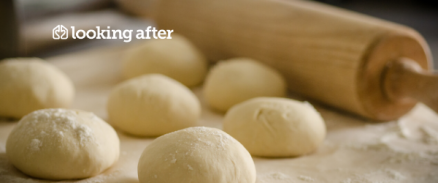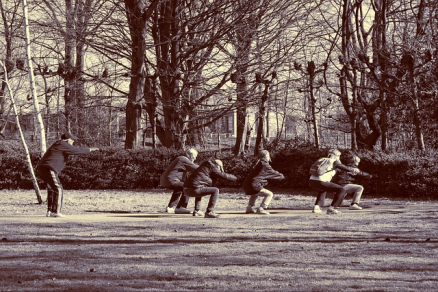Knitting and dementia
We look at the benefits of knitting for the dementia patient, and also review how it can help people to stave off and reduce the chances of getting the disease.
It’s good for brain function.
Knitting is a cognitive activity which exercises the brain with the belief being that this type of activity promotes the development of neural pathways in the brain to help increase cognitive function.
Knitting stimulates different parts of the brain, including memory and attention span. It puts these functions into action, and like a muscle, keeps them strong even through gradual loss of cognitive ability.
Suitable for All
Some of the best outcomes are experienced by people who have learnt knitting in their earlier years and are reintroduced to it when they are concerned about dementia or indeed when they have been diagnosed.
Older people with dementia find it far easier to remember how to knit, as it would have been learnt many years ago rather than recently, as is the case with a lot of other activities/events. Learning it as a new skill can be tricky, however, it is an activity that can be picked up quite quickly so worth exploring the option.
Knitting is suitable for both old and new ‘hands’ as you can start with simple patterns for beginners or people with onset dementia, or more difficult patterns for people who are showing very early signs of the condition or have knitted a lot before. It is suited to anyone at any stage on the syndrome scale.
Other Benefits to Knitting
Socialising
As the positive impacts of the activity have become more well known, there has been a large increase in the amount of clubs/social groups set up where people with dementia or trying those trying to reduce the risk can come together and knit.
This brings people together, sharing stories, sharing tips and helps to increase companionship and a feeling of belonging in the local community. It also helps to raise awareness of the condition, with charities and local businesses often getting involved.
Helps reduce stress/anxiety
The activity is therapeutic, and the repetitive, calming nature of the activity and the use of hands can increase levels of dopamine, the happy hormone, and reduce levels of cortisone, the dangerous hormone that is produced when people are stressed. The activity, with its rhythmic movement, can reduce anxiety, pain and depression.
Independence/Sense of Worth
Joining a social group facilitated by being coming together with a shared interest makes people feel part of the community and gives people a sense of control and purpose, which in turn, makes people feel they are promoting their independence. It has been reported in the Press and through other media that a lot of what is being made/knitted is often donated to good causes, again, helping dementia patients feel purposeful and part of everyday life. Even someone knitting to make a jumper for a loved one can instill a sense of pride and autonomy in someone suffering with the condition.
There are other aspects to knitting that are beneficial to people suffering with dementia. For example, twiddle mitts/muffs which are cuffs/hand warmers which have different textures, materials attached to them, including beads/buttons and ribbons. People can hold and ‘twiddle’ them for stimulation. As similar with knitting itself, the use of the hands and playing with the items can help reduce stress, agitation and anxiety in the person with dementia.
Other ‘Task Oriented’ activities
It’s not just knitting that can help. There are other similar activities that can have the same beneficial impact. Any activity that requires the person to complete a task, overcome a challenge will help exercise the brain and use the ‘attention span’ and memory functions of the brain. As highlighted above, problem solving activities can help develop neural pathways that help maintain cognitive function.
Some of the other activities that you could try if knitting isn’t up your street, could be;
Crosswords/puzzles/crafting/painting. Even more modern games like Jenga could help.
The most important aspect to remember is to keep the brain active, especially whilst facilitating the use of hands in the process. It helps a person with dementia stay calmer, increases social interactions, helps promote independence and autonomy, and makes the person feel a worth and purpose, especially in their local community. If you want to find out more about keeping dementia brains active, we cover it in more detail here.







